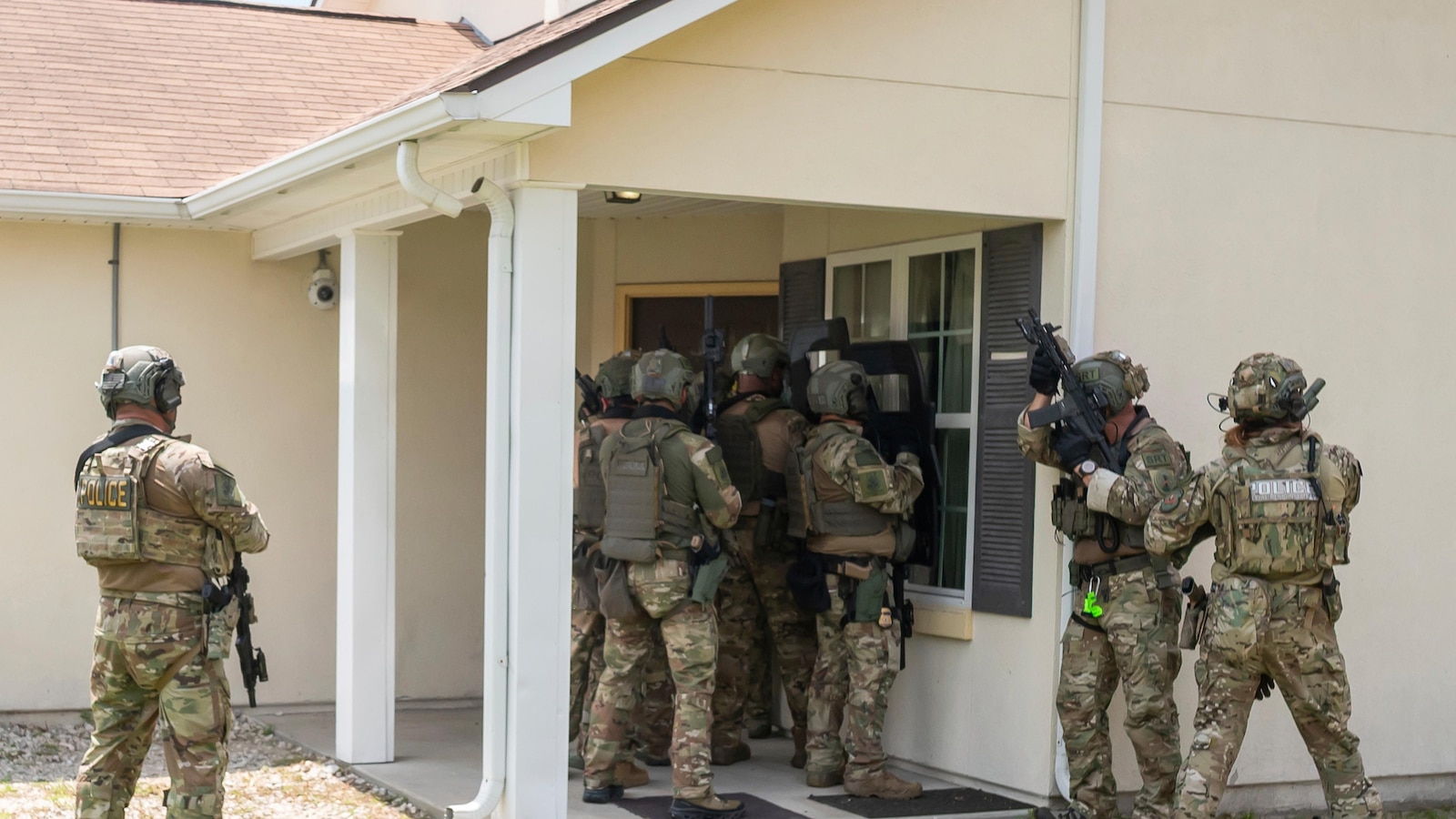Federal Judges Block Trump Administration's Expanded Fast-Track Deportations
Federal judges have temporarily blocked the Trump administration's nationwide expansion of fast-track deportations, citing violations of migrants' due process rights, including those in the interior of the United States.
Subscribe to unlock this story
We really don't like cutting you off, but you've reached your monthly limit. At just $5/month, subscriptions are how we keep this project going. Start your free 7-day trial today!
Get StartedHave an account? Sign in
Overview
- Federal judges have temporarily blocked the Trump administration's nationwide expansion of fast-track deportations for undocumented migrants.
- The courts ruled that the expanded expedited removal policy violated migrants' due process rights, preventing quick removals without proper hearings.
- The blocked expansion aimed to apply expedited removal to individuals detained in the U.S. interior, including some who entered legally under humanitarian parole.
- Historically, expedited removals were limited to those apprehended near the southern border within 14 days, a scope the administration sought to broaden significantly.
- This judicial intervention represents a setback for the Trump administration's mass deportation plans, following challenges from pro-immigrant advocates.
Report issue

Read both sides in 5 minutes each day
Analysis
Center-leaning sources frame this story by emphasizing the federal judge's strong critique of the Trump administration's expanded deportation policy. They highlight the judge's concerns about due process rights and the policy's significant departure from previous applications. The narrative focuses on the legal 'setback' for the administration, underscoring the challenges to its immigration enforcement efforts.
Articles (5)
Center (3)
FAQ
Expedited removal is a federal process that allows for the quick deportation of certain undocumented migrants without a full immigration hearing, typically for those apprehended near the border within 14 days. The Trump administration expanded this policy nationwide to include individuals detained in the U.S. interior, even those who entered legally under humanitarian parole. Immigrants subject to expedited removal who express fear of persecution or intent to apply for asylum should receive a credible fear interview before removal, but many may be unaware of this right, leading to concerns about due process violations.
Federal judges temporarily blocked the expansion because they found it violated migrants' due process rights under the Fifth Amendment by allowing quick removals without proper hearings. The judges highlighted that such a process denies migrants adequate legal protections, including those detained in the U.S. interior, and ruled that the administration's expansion was trampling on constitutional rights.
The Trump administration sought to cancel parole statuses for individuals admitted under humanitarian parole programs such as CBP One and the CHNV program, subjecting them to expedited removal even though they entered legally. This application of expedited removal to parolees is being challenged in court, as it is considered contrary to statute and denies these individuals the chance to defend themselves against deportation.
Legal challenges include lawsuits arguing that the policy violates due process rights under the U.S. Constitution and the Immigration and Nationality Act. One significant case, Make the Road New York v. Huffman, contests the expansion's constitutionality and statute compliance. Courts have previously ruled that because Congress delegated authority solely to the Secretary of Homeland Security, some judicial review avenues are limited, but constitutional claims remain litigable.
Migrants who express a fear of persecution or intend to apply for asylum must receive a credible fear interview by an asylum officer before they can be removed through expedited removal. If the credible fear is established, they are removed from expedited removal and allowed to pursue asylum claims, although many migrants may be unaware of this protection or may be removed swiftly before being able to assert it effectively.
History
- This story does not have any previous versions.




